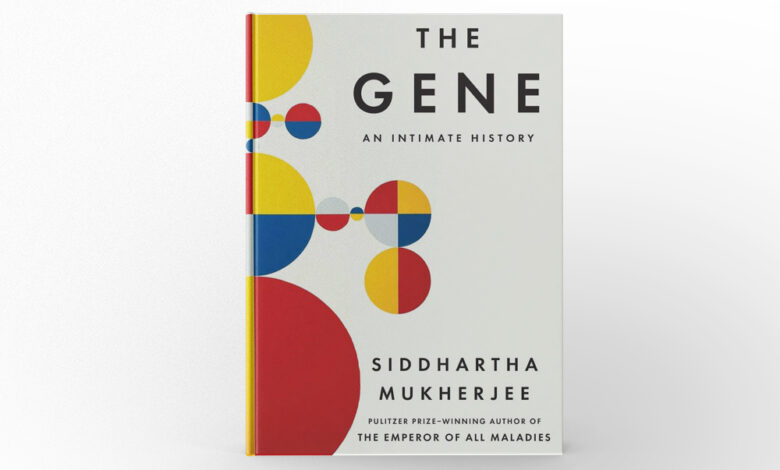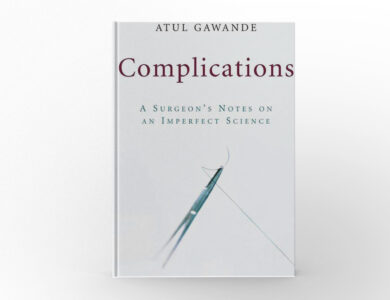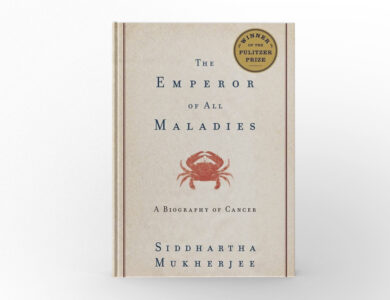The Gene: An Intimate History by Siddhartha Mukherjee
The Gene: An Intimate Exploration of Our Genetic Blueprint

“The Gene: An Intimate History” by Siddhartha Mukherjee is a profound exploration of the history, science, and future of genetics. This book, first published in 2016, delves into the intricate world of genes, offering readers a comprehensive understanding of how genetics shapes our lives and the world around us. In this article, we will explore the various aspects of “The Gene,” providing an in-depth summary, examining its themes, and discussing its lasting impact and legacy.
Author’s Background
Siddhartha Mukherjee is a renowned physician, oncologist, and author, born in 1970. He is a professor of medicine at Columbia University and a cancer researcher. Mukherjee’s writing career began with his Pulitzer Prize-winning book, “The Emperor of All Maladies: A Biography of Cancer.” His expertise in medicine and his ability to weave complex scientific concepts into compelling narratives have earned him widespread acclaim. “The Gene: An Intimate History” is his second major work, and it continues his tradition of blending scientific rigor with engaging storytelling.
In-Depth Summary
“The Gene” is divided into six parts, each chronicling a different era in the history of genetics. The book spans from the early discoveries of heredity to the modern advancements in genetic engineering.
- The Origins of Genetics: Mukherjee begins with the story of Gregor Mendel, a monk whose experiments with pea plants in the 19th century laid the foundation for the science of genetics. Mendel’s work on inheritance patterns was initially overlooked but later became crucial to our understanding of heredity. Mukherjee also discusses Charles Darwin’s theory of evolution and its connection to genetics.
- The Discovery of DNA: The book then moves to the 20th century, highlighting the groundbreaking discovery of the structure of DNA by James Watson and Francis Crick, with significant contributions from Rosalind Franklin. Mukherjee explains how the double helix model revolutionized biology and provided a molecular basis for understanding genes.
- The Genetic Code: Mukherjee delves into the deciphering of the genetic code, which revealed how DNA sequences translate into proteins. This section covers the work of scientists like Marshall Nirenberg and Har Gobind Khorana, who cracked the code and paved the way for modern molecular biology.
- Genetic Engineering: The book explores the advent of genetic engineering, starting with the development of recombinant DNA technology in the 1970s. Mukherjee discusses the ethical and scientific implications of manipulating genes, including the creation of genetically modified organisms (GMOs) and the potential for gene therapy.
- The Human Genome Project: Mukherjee provides an in-depth look at the Human Genome Project, a monumental effort to map the entire human genome. He explains the challenges and triumphs of this project and its impact on medicine and biology.
- The Future of Genetics: The final section of the book examines the future of genetics, including the potential for gene editing technologies like CRISPR. Mukherjee discusses the ethical dilemmas and societal implications of these advancements, emphasizing the need for responsible and thoughtful application of genetic knowledge.
Themes and Insights
“The Gene” explores several key themes, including:
- The Power of Genetics: Mukherjee emphasizes the profound influence of genes on our health, behavior, and identity. He illustrates how genetic research has transformed our understanding of life and disease.
- Ethical Considerations: The book delves into the ethical dilemmas posed by genetic engineering and gene editing. Mukherjee raises important questions about the potential for misuse and the need for ethical guidelines in genetic research.
- The Intersection of Science and Society: Mukherjee highlights the interplay between scientific discoveries and societal values. He discusses how genetics has been used for both beneficial and harmful purposes, such as the eugenics movement.
- The Complexity of Heredity: The book underscores the intricate nature of heredity and the limitations of our current understanding. Mukherjee explains that while genes play a crucial role, they are not the sole determinants of our fate.
Personal Reflections
Reading “The Gene” was an enlightening and thought-provoking experience. Mukherjee’s ability to distill complex scientific concepts into accessible and engaging narratives made the book both informative and enjoyable. His personal anecdotes, including his family’s history of mental illness, added a deeply human element to the story. The exploration of themes such as the power of genetics, ethical considerations, and the complexity of heredity prompted me to reflect on the broader implications of genetic research. “The Gene” is a book that stays with you long after you’ve turned the last page, and I am grateful for the insights and emotions it has evoked.
Recommendation
“The Gene: An Intimate History” is a must-read for anyone interested in genetics, medicine, or the history of science. Siddhartha Mukherjee’s sharp writing and insightful analysis make this book a standout in the genre of scientific literature. Whether you’re a scientist, a student, or a layperson, “The Gene” offers a compelling and unforgettable reading experience. Its exploration of the intricacies of genetics and the ethical dilemmas it presents will leave you questioning and reflecting long after you’ve finished the book.
Impact and Legacy
Since its publication, “The Gene” has had a significant impact on both the literary and scientific communities. The book’s success has led to numerous accolades, including being shortlisted for the Royal Society Prizes for Science Books. Mukherjee’s work has influenced countless readers, encouraging a deeper understanding of genetics and its implications for society.
“The Gene” has also sparked important conversations about the ethical and societal implications of genetic research. Mukherjee’s exploration of the history and future of genetics has resonated with readers and inspired discussions about the responsible use of genetic knowledge.
The book’s popularity and critical acclaim have solidified Siddhartha Mukherjee’s reputation as a leading voice in scientific literature. “The Gene” remains a cornerstone of contemporary nonfiction, offering invaluable insights into the complexities of genetics and the human condition.
Conclusion
In conclusion, “The Gene: An Intimate History” by Siddhartha Mukherjee is a powerful and transformative book that offers readers a gripping and thought-provoking exploration of the history, science, and future of genetics. Its intricate narratives, complex characters, and sharp writing make it a standout work in the field of scientific literature. Whether you’re revisiting the book or discovering it for the first time, “The Gene” offers invaluable insights and a truly unforgettable reading experience.





